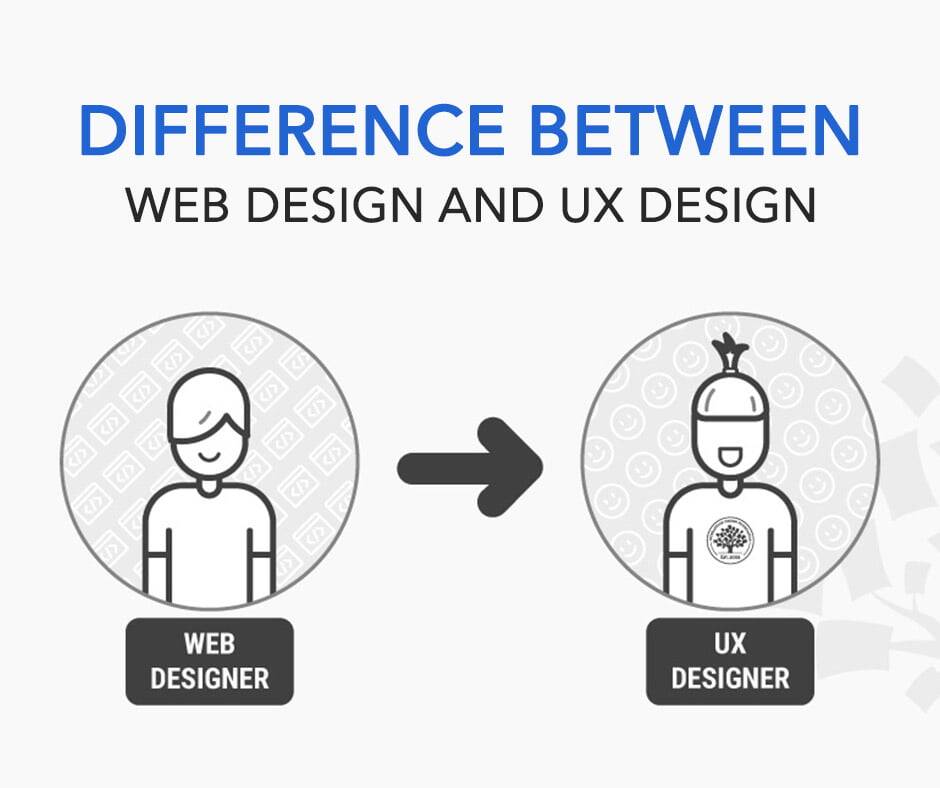When someone I met at a party, “What is your daily job?”. I usually say that I am a web designer. This is the answer that most people understand, and it is accurate to some extent, although it is not the full story. There are differences between Web Design Colorado Springs and what I do but they often overlap so it’s just the easier answer. If I respond to people that I am a UX designer (short for User Experience designer), then the conversation that follows is more or less straight forward. People either think that I am trying to put a big note on myself to sound more important by using a fancy title. They are just genuinely confused and are unable to grasp the idea behind it, even when I go on to explain it, “I am a web designer” is just much easier in every way.
But when it comes to having a chat with clients, recruiters as well as coworkers, I make it to the fact that I state that “I am a User Experience Designer”. Why should anyone believe that it is even more important to make this objective and distinction for the audience instead of calling myself a web designer?
Table of Contents
ToggleOverview
Web designing is a way of providing information to outsiders. We as web designers look after designing and creating web pages that are seamless and interact well with users and provide them with the right information that they are looking for on the web. The main difference between a web designer and a User Experience designer is that a UX designer will deal with the way the web page is looking to ensure that the customer experience is seamless and pleasant as well as fruitful to them. It is to ensure that users are able to derive meaningful information out of the website or the web application that they are interacting with.
Both these designers are crucial to make sure that the customers are able to get what they are looking for on the web. There are many aspects to consider when the user experience design is being determined. Elements such as buttons, input boxes, check-boxes, list fields and many more need to be put in by UX designer. This is done to ensure that the overall user experience is well and good for the end-user.
Here are the major differences between a Web Designer and a User Experience Designer (Web Design vs UX Design)
1) It implies a strong command of HTML, CSS, and JavaScript
I used to keep myself about the latest happenings in all of the latest technologies for achieving cross-browser compatibility as well as the elegant separation of markup, styling, and behavior. I benefit from having reasonable knowledge of how to write best-practiced code, but I just don’t spend much time doing it. And I’m OK with that.
2) It ignores all the other platforms
The web is wonderful as well as a delightful platform to design for, and this is the one I know best, but it is not the only platform. These days I also apply my designing skills to desktop software as well as native mobile apps. The technologies, constraints as well as conversions as stated for each of these platforms may differ, but the processes that I follow as well as many of the principles that guide me are usually identical in nature.
3) It comes with additional baggage
The immediate image that generally most people conjure for a web designer is that of a 14-year-old with a pirated copy of Photoshop and DreamWeaver. Describing yourself as a web designer is known to undersell the professionalism as well as the experience that you bring to a project or a client. The very term is able to invoke both generalization and specialization because it is what is required. UX designers are specialists at being able to be generalists. And they may be specialists at some other things too.
You may also like to know: UI vs UX – Knowing the Difference
4) It is known to ignore the processes, techniques as well as disciplines upon which UX design is based
The term UX design is most often used as an umbrella term. This is able to span all the stages of a product’s lifecycle, from research to post-launch to everything in between. There are several activities done by a UX designer that is able to inform a design but are decidedly not design. Techniques such as collecting user research. They are able to create an information architecture, creation of user profiles as well as user stories. If you are doing some of these activities under the umbrella.
You are not effectively communicating that fact with your clients or in your marketing activities. You are underselling your skills. Likewise, the user-centered design process is well established. These are having evolved years ago from the fields of psychology, sociology as well as ethnography. The fact that it is broad by definition encourages practitioners to step back as well as appreciate a project from afar, to fully understand and comprehend the bigger picture.
5) It is not how more experienced roles are advertised
Companies that do not utilize the web in a big way as a part of their business. These are probably the ones who do not need a UX designer, they need a web designer. The requirement for online presence is not that complex. They may be a restaurant that needs a simple informative website that displays contact details, a map to the restaurant and a downloadable menu. Other than a blog in order to complement the content . The website is largely static, the basic pages do not change over time.
Of course, the focus on UX designer is more important than that of a typical web designer. The web designer knows how to construct the website. They do not have the proper knowledge of making a website user-friendly. Objectives such that the user experience of anyone who visits the website is enhanced and pleasant. This is the job of the User Experience designer to design elements of the website to be user-friendly. Enhancing the experience of the user who visits the website. This is the main difference between a web designer and the user experience designer.
Read More: UI/UX Strategies For Mobile App Design in 2020
Conclusion
There are subtle differences in the approach when it comes to comparing the two distinctive fields. If you’re looking for any requirements for designing a website or the UI interface for a mobile application. Do share your requirements with us, we have the best UX designers who have a vast amount of experience and skills. These can be used for developing applications and interfaces that your users will like and appreciate. If you’re looking to hire UI UX designer for designing great UI interfaces then drop us an email on enquiry@nimapinfotech.com to discuss your requirements. I hope you have found the article on Web Design vs UX Design useful.
Author
-

With 14+ years in IT and entrepreneurship, I co-founded Nimap Infotech, a digital transformation company that has delivered 1200+ projects and built a team of 400+ engineers. I’ve also led mobile development teams at Accenture India and IBM Apple Garage and developed a network of 7k+ iOS and Android developers. As an Angel Investor, tech advisor, and mentor, I actively engage with the startup ecosystem.
View all posts








